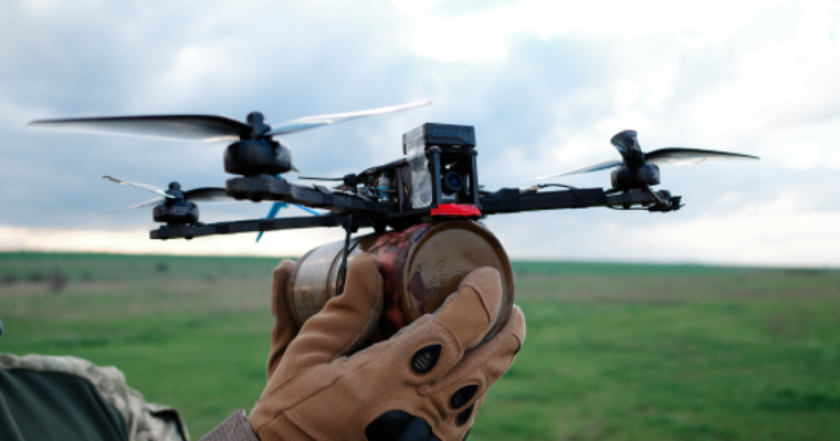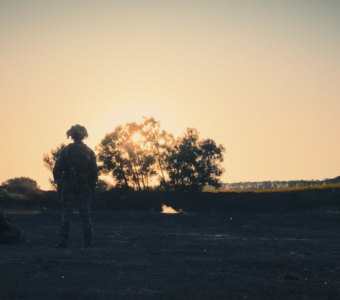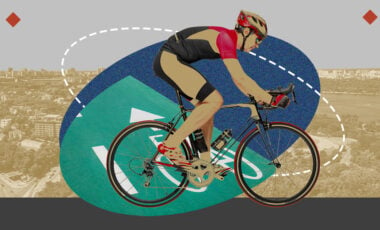Ukrainian drone operators have improved interception of Russian drones — ISW

Illustrative photo: heroesukraine.org
Ukrainian drone operators use FPV drones to defeat Russian reconnaissance drones. This will allow Ukraine's Air Force to ease pressure on short- and medium-range air defense equipment.
Rubryka reports this with reference to the report of the Institute for the Study of War (ISW).
"Ukrainian drone operators appear to be improving their capabilities to interdict longer-range Russian drones in mid-air, and these technological innovations may allow Ukrainian forces to ease pressures on short-range and medium-range air defense assets if successfully fielded at scale," the report said.
A video released on June 1 shows Ukrainian forces using FPV drones to shoot down a Russian Zala tactical reconnaissance drone and an Orlan-10 medium-range reconnaissance drone mid-flight in the Velyka Novosilka area.
On June 29, the Kharkiv operational-tactical group published a video showing a Ukrainian drone intercepting a Russian unmanned aerial vehicle, Lancet, flying in the direction of Kharkiv.
Military analysts noted that both Ukrainian and Russian forces appear to be improving their ability to use UAVs to intercept other UAVs at the tactical level.
ISW has yet to see confirmation that Russian forces are using drones to shoot Ukrainian long-range drones in the air.
The ability of the Ukrainians to use cheap and widely available drones for large-scale interception of more expensive Russian reconnaissance drones would likely allow Ukrainian forces to weaken Russian strike systems, while retaining expensive and scarce short- and medium-range air defense interceptors for more costly and significant Russian aerial targets.
However, ISW has not yet observed Ukrainian forces using FPV drones to strike Russian reconnaissance drones on a large scale.
The Russian and Ukrainian armed forces are currently conducting a technological competition between offensive and defensive forces.
Ukraine's ability to introduce technological innovations ahead of Russian adaptations is crucial to Ukraine's ability to offset Russia's current logistical advantages.
ISW key takeaways as of July 7
- Ukrainian forces conducted a drone strike against a Russian ammunition depot in Sergeevka, Voronezh Oblast onthe night of July 6 to 7.
- Satellite imagery confirms that the Ukrainian Air Force conducted a successful strike against a reported Russian regimental command post in Belgorod Oblast in late June 2024, likely with Western-provided weapons – further demonstrating how Ukraine could disrupt Russian offensive operations should the West continue to lift restrictions on Ukraine's use of Western-provided weapons to strike military targets in Russia.
- Ukrainian drone operators appear to be improving their capabilities to interdict longer-range Russian drones in mid-air, and these technological innovations may allow Ukrainian forces to ease pressures on short-range and medium-range air defense assets if successfully fielded at scale.
- Chechen "Akhmat" Spetsnaz forces likely coerced a Russian military blogger to issue a public apology after he criticized "Akhmat" forces – an illustrative example of unprofessionalism in the Russian military.
- Russian forces recently made confirmed advances near Chasiv Yar and Toretsk, and Ukrainian forces recently advanced north of Kharkiv City.
- Open-source researchers analyzed satellite imagery and assessed that Russia has removed roughly 42 percent of Russian tanks from pre-war open-air storage since the start of the full-scale invasion.
It will be recalled that the Commander-in-Chief of the Armed Forces, Oleksandr Syrskyi, said that drones are one of the army's priorities because, in the realities of modern warfare, the number of drone strikes is on the same level as artillery.
As reported, on February 6, President Volodymyr Zelensky instructed to work out the issue of creating a separate type of forces within the structure of the Armed Forces —the Unmanned Systems Forces.
The document states that its purpose:
- increasing the capabilities of the Armed Forces of Ukraine regarding the use of unmanned and robotic air, sea and land systems,
- ensuring readiness for the use of such systems as intended.
Earlier, Rubryka reported that in accordance with the order of the Minister of Defense of Ukraine dated June 10, 2024, Colonel Vadym Sukharevskyi was appointed commander of the Unmanned Systems Forces of the Armed Forces of Ukraine.
Defense Minister Rustem Umyerov emphasized that the creation of a new type of forces in the Armed Forces is "an important step in the development of the Ukrainian army," because it is "new doctrines, applications, planning and orders."

















































